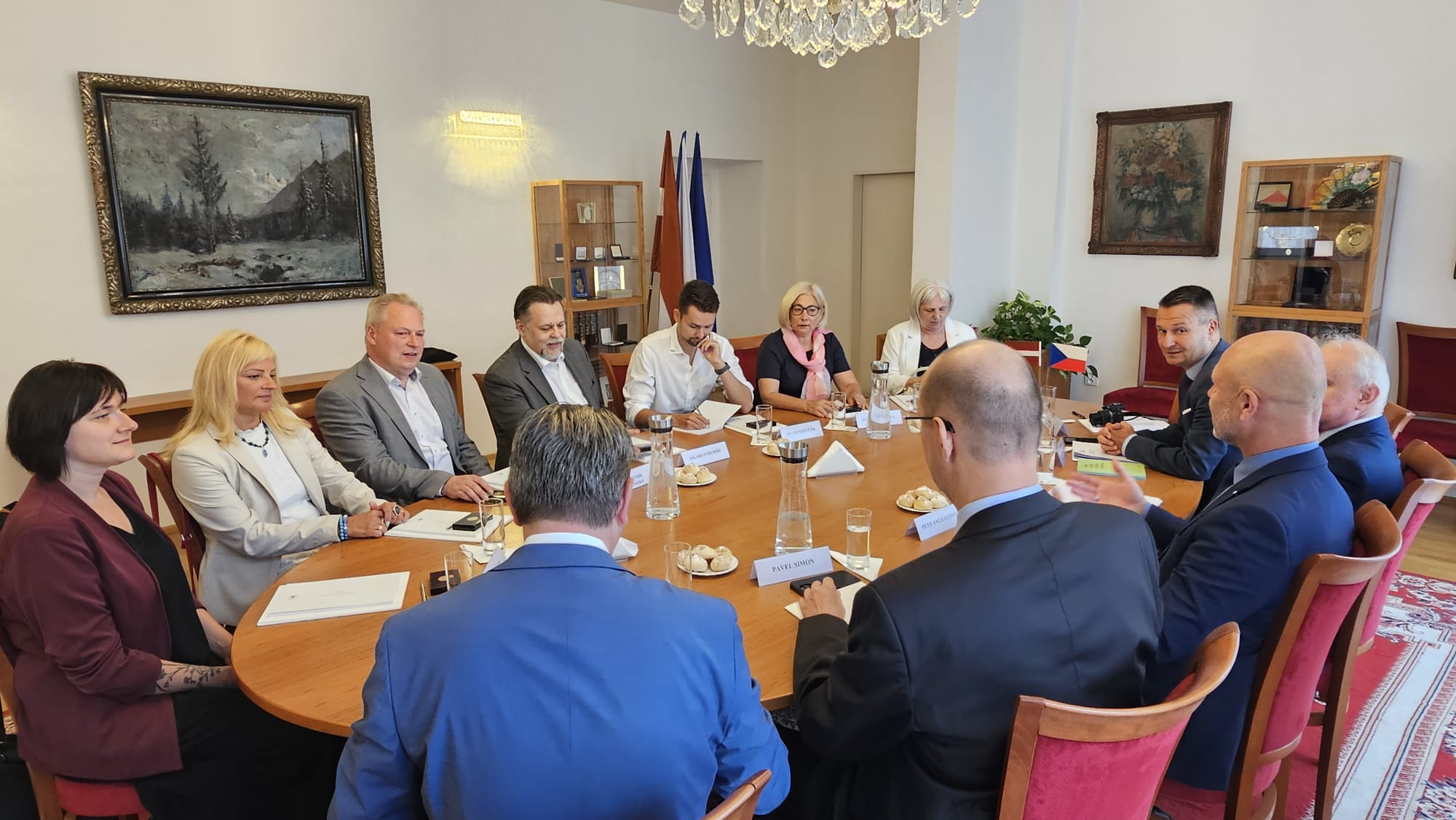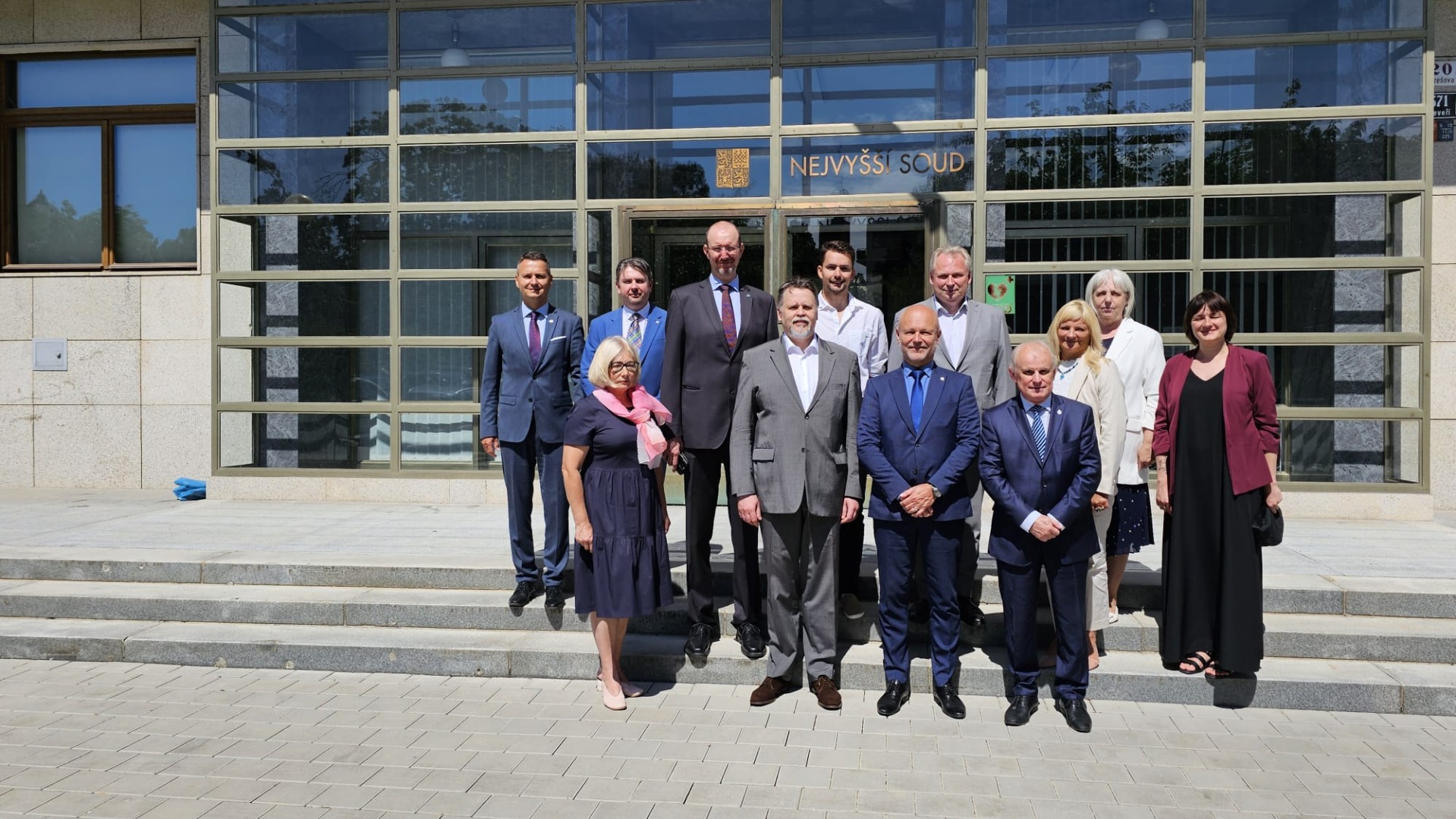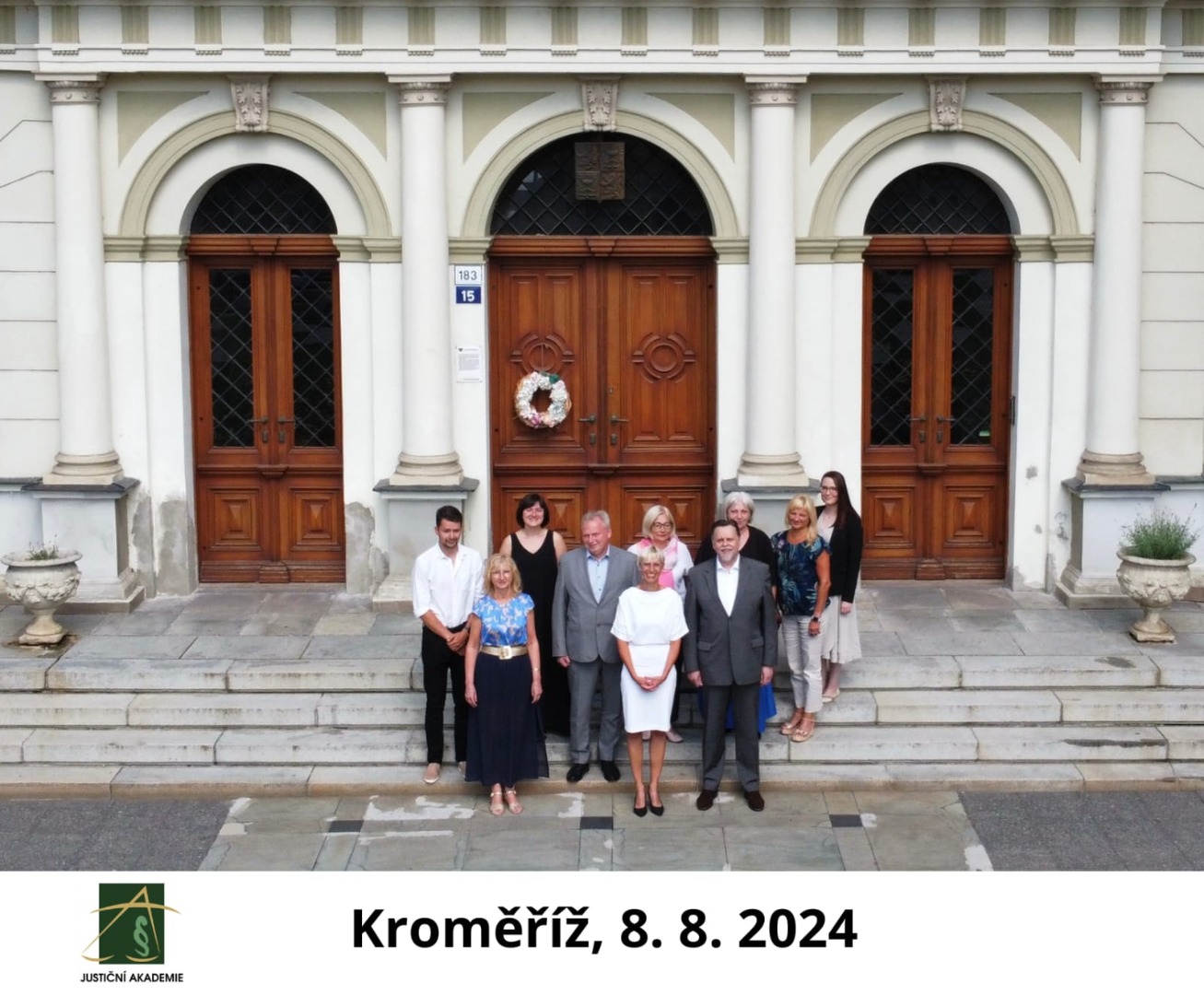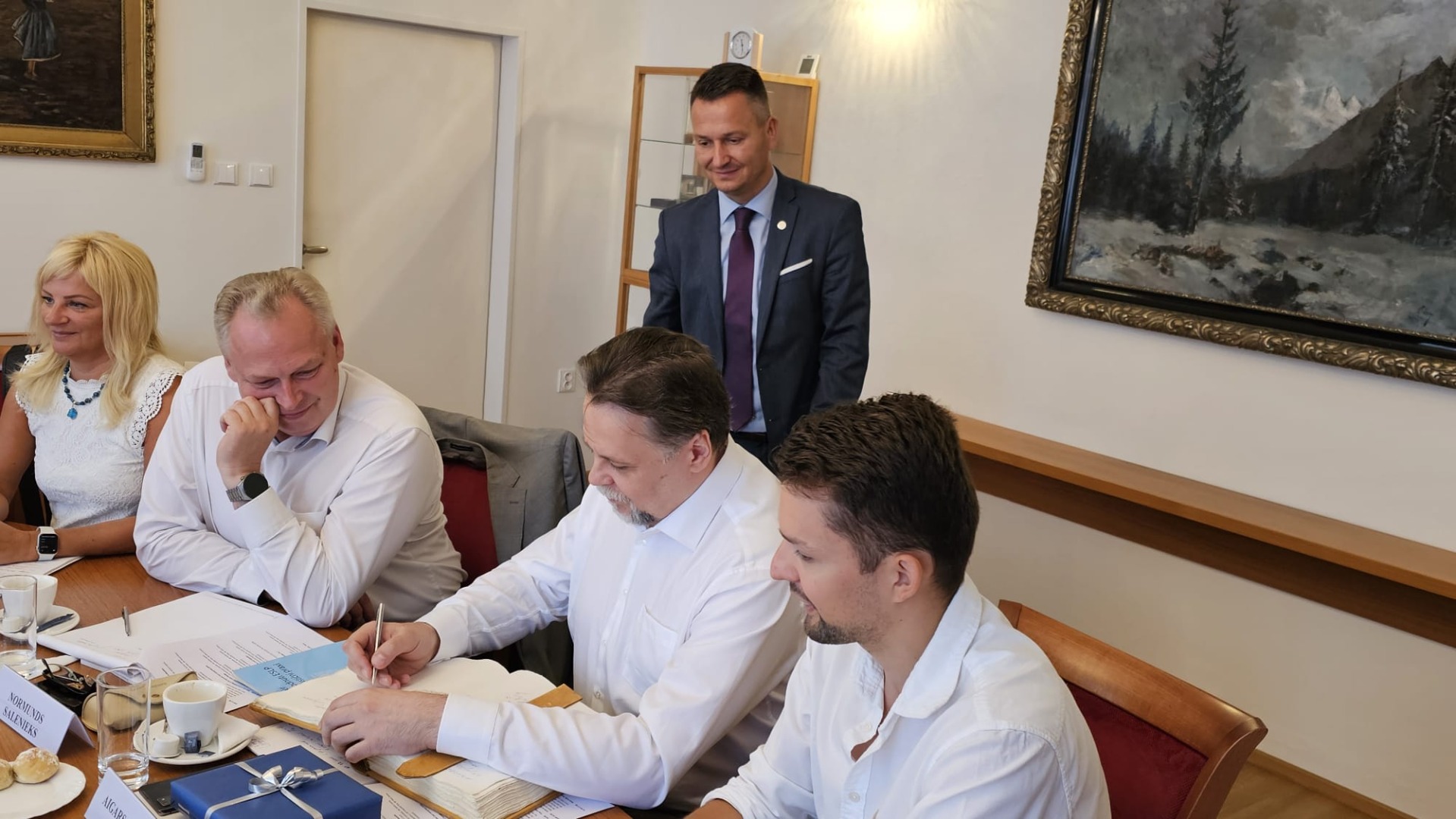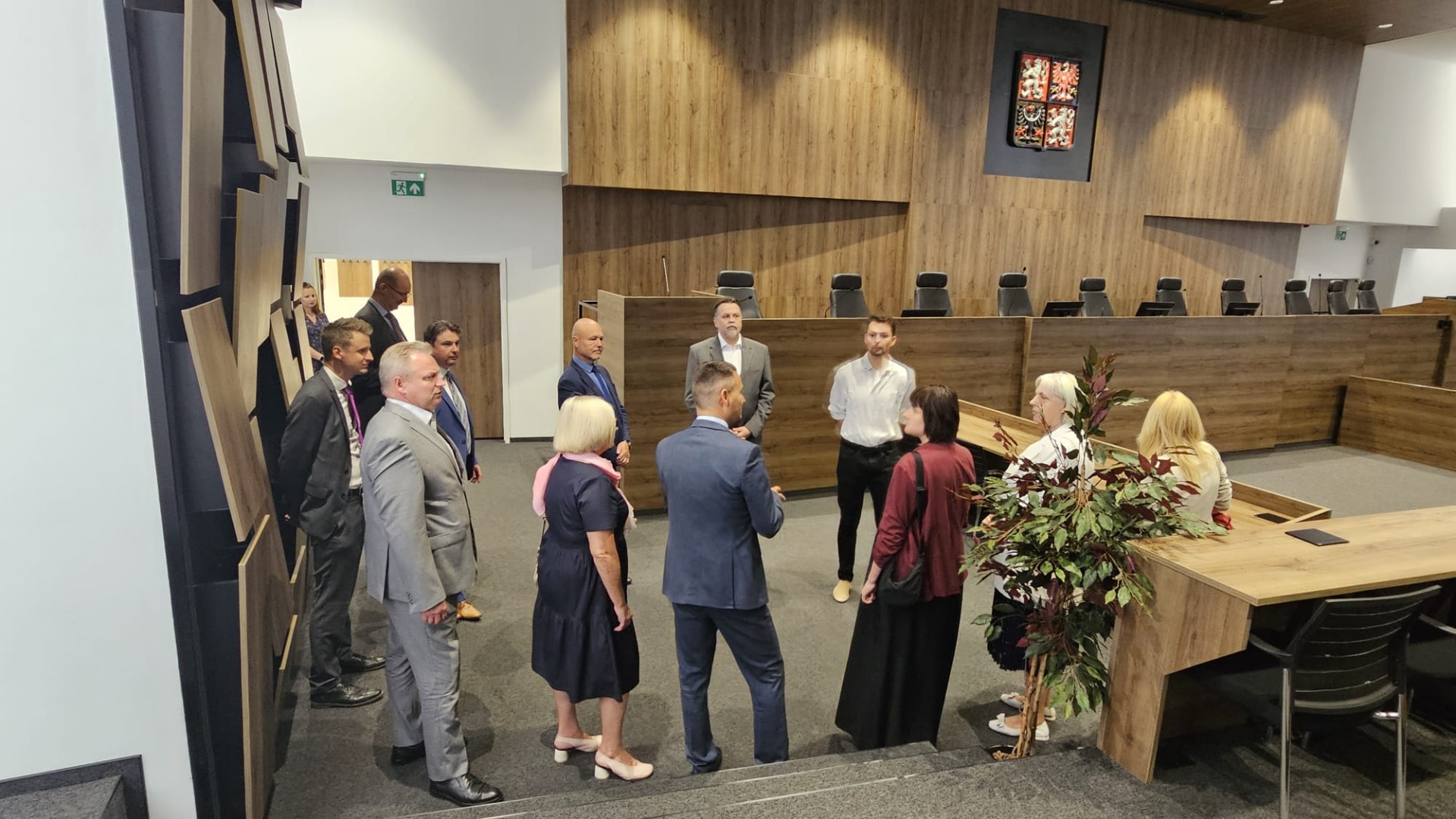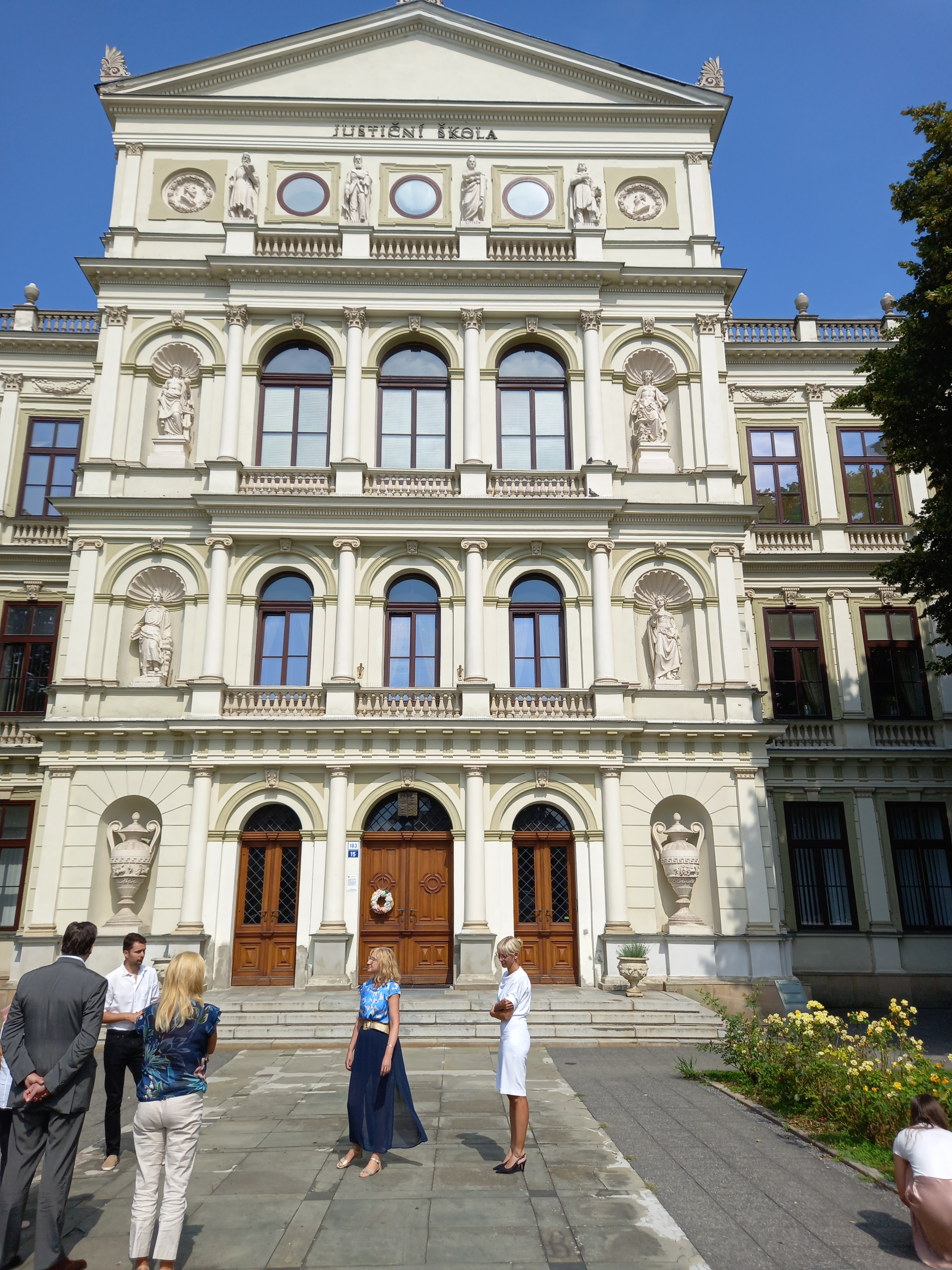12. augusts, 2024.
Last week, in order to mutually exchange experience in the effective management of the work of the Supreme Courts and in further education of judges, a delegation of the Supreme Court of Latvia headed by President Aigars Strupišs visited the Supreme Court and the Judicial Academy of the Czech Republic.
The Supreme Court of the Czech Republic is a cassation court that examines civil and criminal cases, there is a separate Supreme Administrative Court for administrative cases. Since 1993, the Supreme Court is not located in the capital city, but in Brno, which is called the city of justice, because the Supreme Administrative Court of the Czech Republic is also located there. This entails a certain challenge for courts, because the majority of judges do not live in Brno, but work there during a week and live in the service premises.
As pointed out by Petr Angyalossi, President of the Supreme Court of the Czech Republic, and Aigars Strupišs, President of the Supreme Court of Latvia, the efficiency indicators of the two courts are relatively similar, yet the experience of foreign colleagues can always encourage new ideas and solutions. In the Supreme Court of the Czech Republic, 72 judges review an average of 1,400 criminal cases and 4,000 civil cases per year, the backlog of cases has decreased approximately two times over a 10-year period, the average length of proceedings in the cassation court is 140 days for civil cases and 43 days for criminal cases. The President of the Supreme Court illustrated the improvements in performance indicators both with the decrease in the number of cases received by the court, which was facilitated by amendments to laws and stricter cassation filters, and with the work organization, setting as a priority the faster examination of older cases. Also, the statistics of case examination are strictly followed, and if the examination of a case is prolonged, the causes of the problem are discussed with a judge and solutions are sought. Judges are assisted by 8 interns and 162 assistants.
In the Czech Republic, public trust in the judiciary is high – 68%, in the Supreme Court and the Constitutional Court – 80%. The President of the Supreme Court explained that it is because of open communication, namely court rulings are explained and information of interest to the media is provided. The Court also works with schoolchildren and students, holding discussions on legal topics on the Law Night. The Supreme Court publishes both its own rulings and rulings of the European Court of Human Rights and the Court of Justice of the European Union, with commentary provided by judges explaining how these rulings affect Czech judicial system.
Moreover, the Czech colleagues were interested in the budgeting experience of the Supreme Court of Latvia, which is independent in creating the Court's budget and administering resources.
Taking into account the ongoing project of creating the Judicial Academy in Latvia, the Supreme Court delegation also visited the Judicial Academy of the Czech Republic and learned about the organization of further education of judges and court employees and creation of training programs in the Czech Republic.
President of the Supreme Court Aigars Strupišs, Chair of the Department of Civil Cases Normunds Salenieks, Chair of the Department of Criminal Cases Anita Poļakova, Head of Administration Sandra Lapiņa, Head of the Communication Division Rasma Zvejniece and Project Manager Zane Mičule took part in the visit to the Supreme Court of the Czech Republic.
Information prepared by
Rasma Zvejniece, the Head of the Division of Communication of the Supreme Court
E-mail: rasma.zvejniece@at.gov.lv, telephone: +371 67020396, +371 28652211


